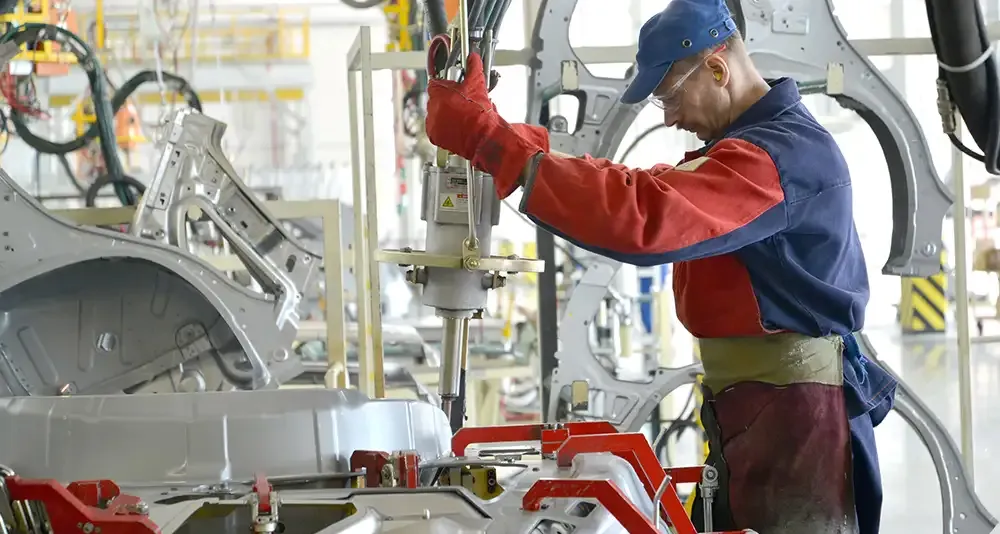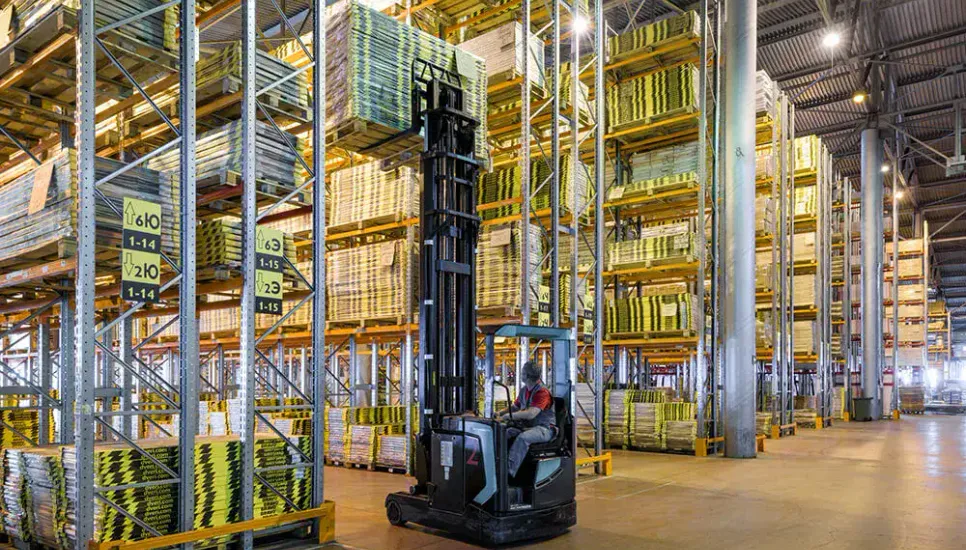Introduction
Industrial machinery is a staple of modern production chains, yet even with the advent of automatization, workers in manufacturing continue to report injuries on a daily basis. Working around industrial machines presents a unique set of risks that can only be prevented if all employees are rigorously trained before they are assigned their first tasks.Potential Hazards
The most common risks associated with operating industrial machinery are:
Working Around Moving Parts.
Being in the proximity of moving parts increases the risk that a worker or a worker’s body part becomes entangled or trapped in different types of pinch points. While some injuries can be minor, more serious accidents can result in the crushing of the operator’s fingers, hands, arms, legs, or worse. Such incidents can even prove to be fatal, which is why industrial machinery must always be maintained in top shape and all employees must be trained to work around it safely.Exposure to Asbestos and Dangerous Substances.
While the hazardous effect of asbestos on human health is now well-documented, this was not the case in the late 20th century, when the substance was frequently used in the construction of factories due to its heat-resistant properties. Some of these factories are still functional today, but gradual decay and exposure to hot or cold air have often led to the release of asbestos fibers into the air. Industrial machinery operators now working in these environments may become exposed to asbestos and suffer long-term respiratory illness. Depending on the exact type of machinery they work with, as well as the product that they help manufacture, employees may also come in contact with a series of other dangerous substances, from various chemicals to oils, industrial cleaners, fumes, and more.Exposure to Excessive Noise.
A factory can be a very noisy work environment, which can ultimately create more than mere discomfort in employees. Prolonged exposure to excessive noise may lead to a number of hearing issues and, given enough time, can even lead to loss of hearing.Electrocution and Burns.
Either because the machinery is poorly maintained or due to human error, electrical parts may become exposed in the proximity of employees. Overloaded plugs, damaged cords, exposed wires, and malfunctioning equipment are all factors that increase the risk of electrocution and/or fire. Without the proper training, workers may fail to detect these issues in due time and are thus unable to prevent an accident from taking place.
Incident Prevention
Experience may help industrial machinery operators maintain their safety at work, but this is not always the case and, more importantly, not all employees in a factory can boast the same proficiency in this sector. The first step towards successful incident prevention is therefore the comprehensive training of all workers. Once operators become familiar with the risks at hand, they can better assess dangerous situations and implement preventive measures.
Furthermore, operators must become intimately familiar with the industrial machines that they manage. In other words, they must understand how the machines work, what (hazardous) materials are used in the process, whether there are any proximate pinch points, and how the machinery can be powered down immediately in case of an emergency.
In addition to training, personal protective equipment plays an equally important role, especially for operators who are required to handle hazardous materials on a daily basis. In the case of physical accidents, the right PPE can minimize injuries and even save lives, whereas respirators and noise-cancelling headphones or muffles can help preserve the long-term health of employees.
Recommended Safety Courses



What You Can Do to Stay Safe
If you are an industrial machinery operator, the first thing you can do to create a better work environment is to undergo the necessary safety training. Across all Canadian jurisdictions, your employer bears the legal responsibility to make such training available for you and your co-workers.
Operating industrial machinery may be required on a number of different jobs across multiple industries. These include:
- Production worker in the Logging and Forestry industry.
- Construction laborer or equipment operator in the Construction industry.
- Manufacturing technician in the Pharmaceuticals and Healthcare industry.
- Production worker or assembler in the Construction industry.
- Production worker in the Agricultura and Food industry.



